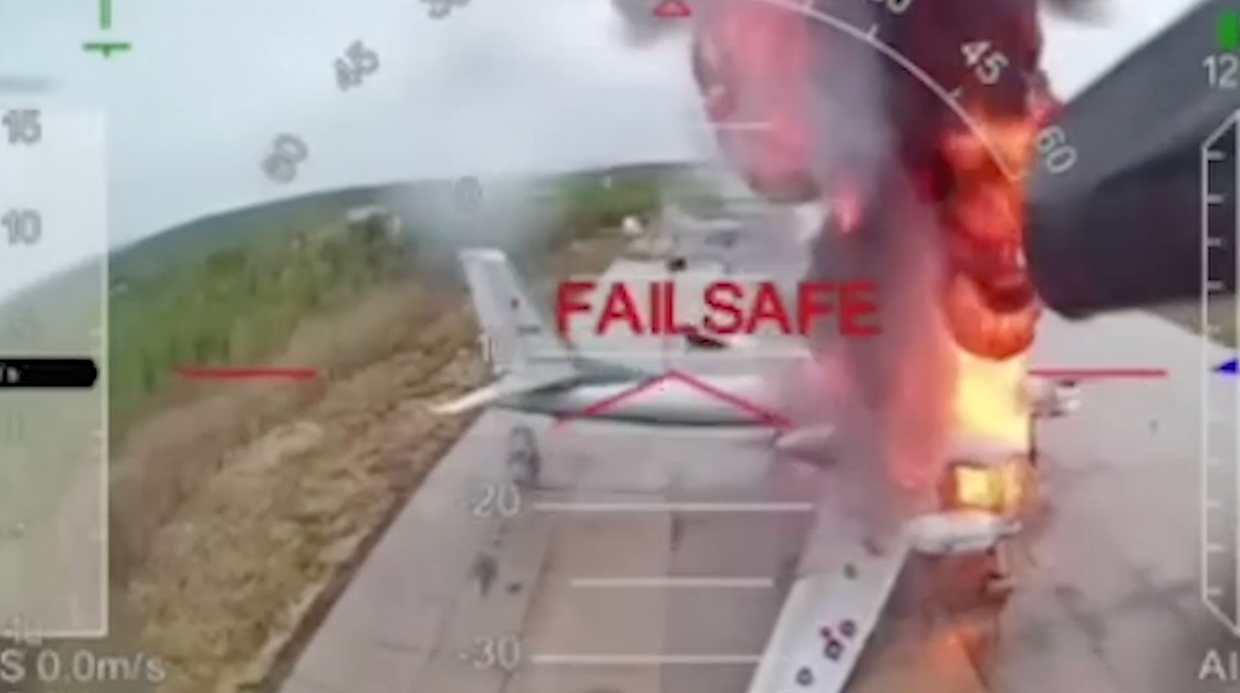Ukraine used only domestic drones in Operation Spiderweb, Zelensky says

Ukraine’s Security Service (SBU) used exclusively domestically produced drones and did not deploy any equipment from allied stockpiles in its recent attack on Russian heavy bombers, President Volodymyr Zelensky told ABC News in an interview published on June 7.
"I wanted very much to use only what we produce and to have the separation (be) very clear," Zelensky said, as quoted by the TV network.
On June 1, Ukraine launched a game-changing drone attack on four Russian military airfields, damaging 41 planes, including heavy bombers and rare A-50 spy planes, now largely known as Operation Spiderweb.
The Kyiv Independent could not independently confirm the number of planes allegedly damaged and destroyed by the SBU. At least 21 planes were damaged or destroyed, according to open-source intelligence analysts.
Kyiv has claimed it had disabled 34% of Russia's strategic bomber fleet in what is seen as one of the most daring operations during the full-scale war.
To do so, Ukraine used one of the cheapest weapons already used on the battlefield — first-person-view (FPV) drones.
Since the start of the full-scale invasion, Ukraine has been developing and deploying technological innovations and cutting-edge unmanned systems. Both Ukraine and Russia have increasingly relied on drone warfare, using aerial, naval, and ground-based drones for reconnaissance and combat missions.
In late March, presidential advisor Alexander Kamyshin said in an interview with Radio Khartia that Ukrainian manufacturers have the capacity to produce over 5 million FPV drones per year.
A year-and-a-half in the planning, and reportedly personally overseen by SBU Chief Vasyl Malyuk and Zelensky, Operation Spiderweb was an "absolutely unique operation," according to the president.
According to the SBU, the drones were smuggled into Russia, where they were then hidden on the roofs of wooden cabins, which were then transported by truck to the air bases being targeted.
When they reached their destinations, the roofs were retracted remotely, and the drones simply flew off towards the Russian bombers.
In the interview with ABC News released on June 7, Zelesnky said truck drivers who transported the drones did not know anything about their role in the attack.
"They didn't know anything," Zelensky said. "They just did their job."














